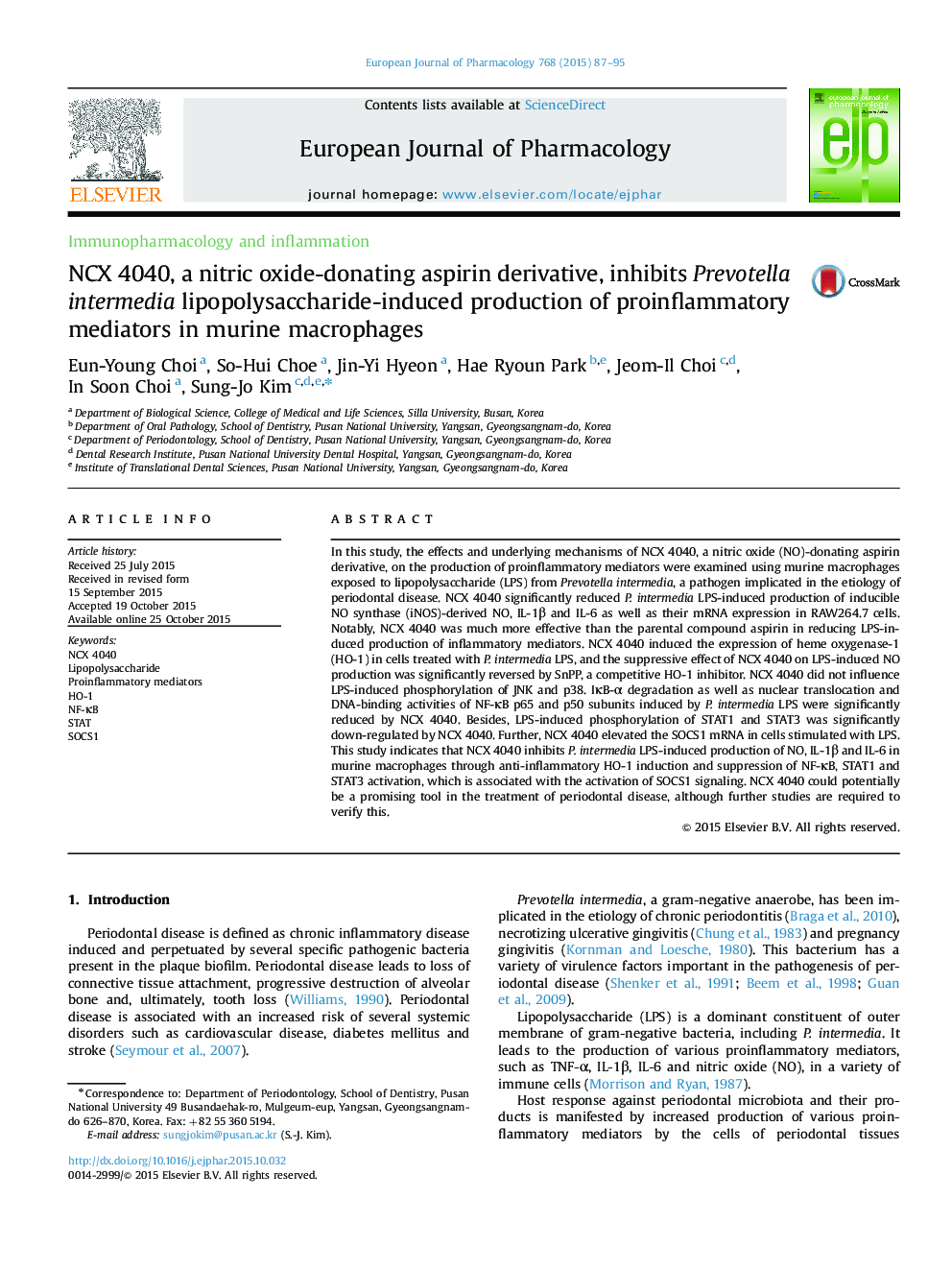| Article ID | Journal | Published Year | Pages | File Type |
|---|---|---|---|---|
| 2531256 | European Journal of Pharmacology | 2015 | 9 Pages |
In this study, the effects and underlying mechanisms of NCX 4040, a nitric oxide (NO)-donating aspirin derivative, on the production of proinflammatory mediators were examined using murine macrophages exposed to lipopolysaccharide (LPS) from Prevotella intermedia, a pathogen implicated in the etiology of periodontal disease. NCX 4040 significantly reduced P. intermedia LPS-induced production of inducible NO synthase (iNOS)-derived NO, IL-1β and IL-6 as well as their mRNA expression in RAW264.7 cells. Notably, NCX 4040 was much more effective than the parental compound aspirin in reducing LPS-induced production of inflammatory mediators. NCX 4040 induced the expression of heme oxygenase-1 (HO-1) in cells treated with P. intermedia LPS, and the suppressive effect of NCX 4040 on LPS-induced NO production was significantly reversed by SnPP, a competitive HO-1 inhibitor. NCX 4040 did not influence LPS-induced phosphorylation of JNK and p38. IκB-α degradation as well as nuclear translocation and DNA-binding activities of NF-κB p65 and p50 subunits induced by P. intermedia LPS were significantly reduced by NCX 4040. Besides, LPS-induced phosphorylation of STAT1 and STAT3 was significantly down-regulated by NCX 4040. Further, NCX 4040 elevated the SOCS1 mRNA in cells stimulated with LPS. This study indicates that NCX 4040 inhibits P. intermedia LPS-induced production of NO, IL-1β and IL-6 in murine macrophages through anti-inflammatory HO-1 induction and suppression of NF-κB, STAT1 and STAT3 activation, which is associated with the activation of SOCS1 signaling. NCX 4040 could potentially be a promising tool in the treatment of periodontal disease, although further studies are required to verify this.
